
Lagos Fishermen Embrace Tourism To Boost Revenue As Climate Change Leaves ‘Fishless’ Waters Across City
Lagos Fishermen Embrace Tourism To Boost Revenue As Climate Change Leaves ‘Fishless’ Waters Across City
Follow Us @
Lagos Fishermen Embrace Tourism
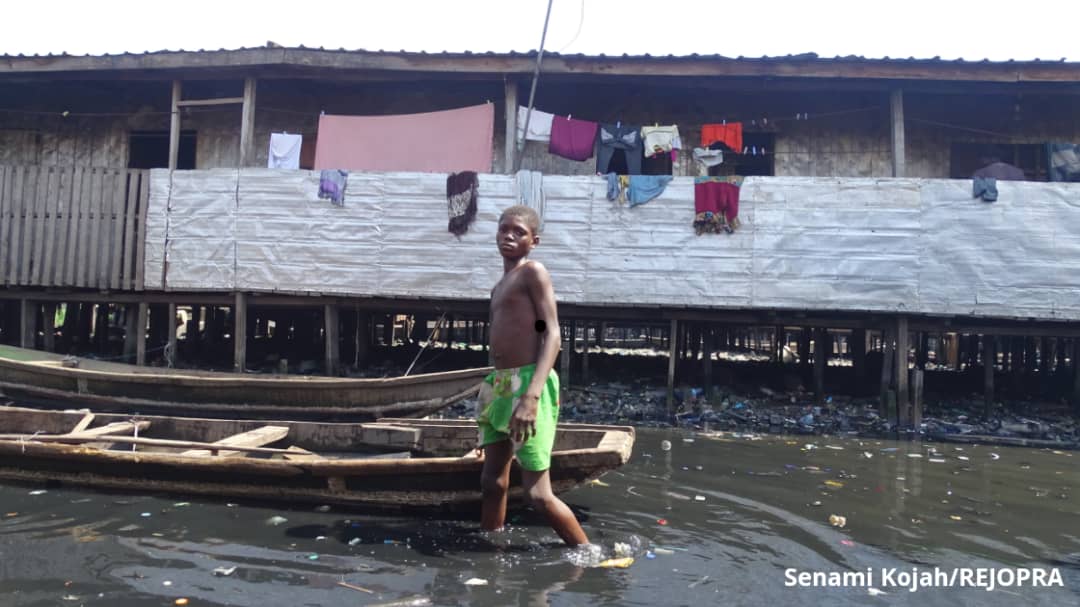
Young boy makes his way through the now shallow water in Makoko
Lagos Fishermen Embrace Tourism.
Native occurring marine wildlife such as the Senegal jack are becoming rarer to find.
Lagos Fishermen Embrace Tourism
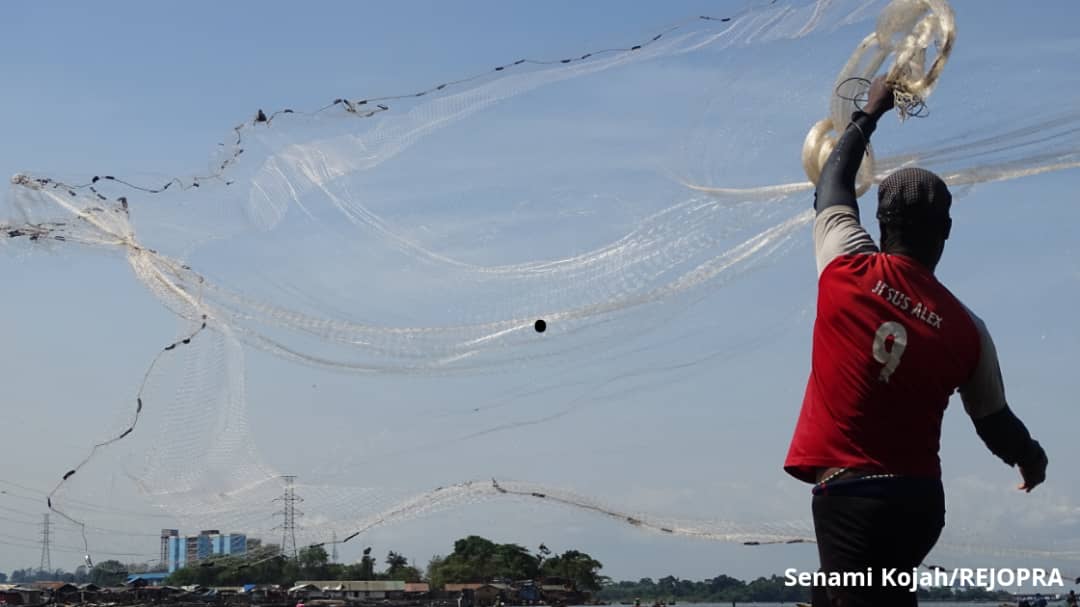
Native occurring marine wildlife such as the Senegal jack are becoming rarer to find.
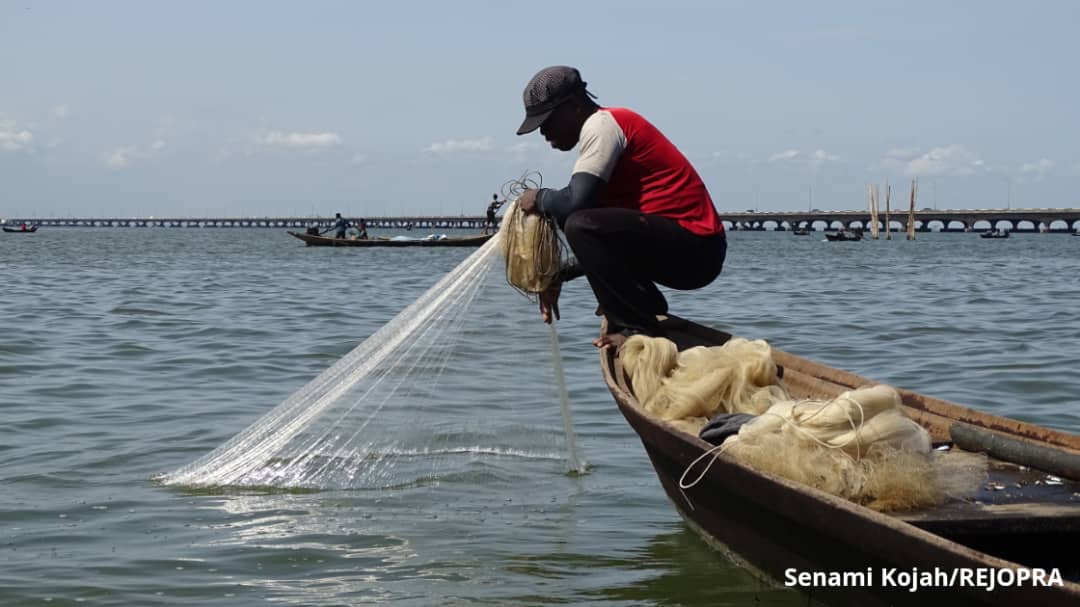
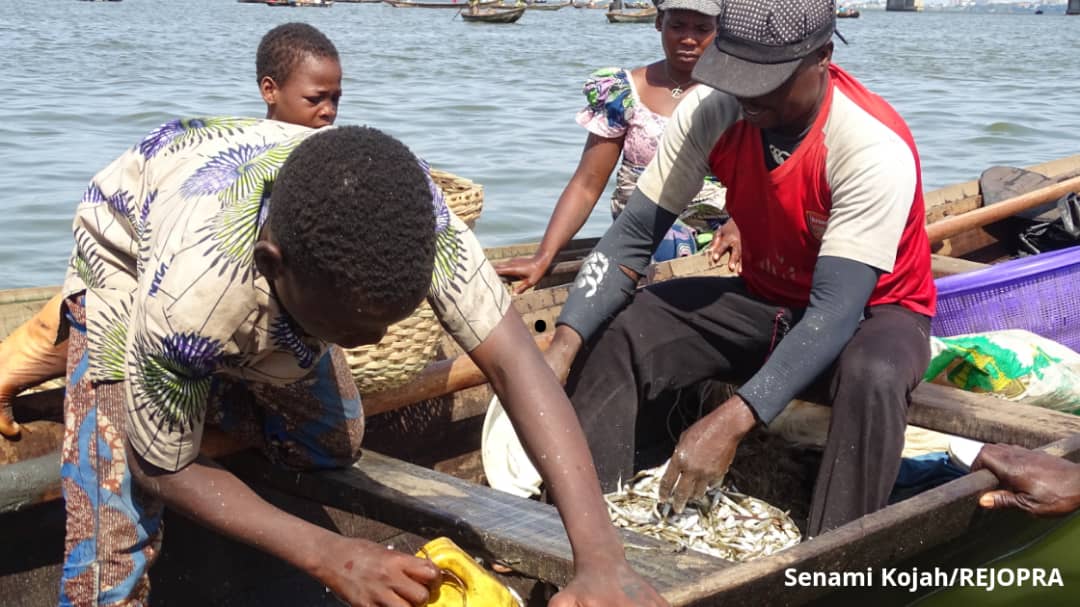
Local fisherman Segun Azankpo and his family sort White Bait inside his canoe.

In February 2020, World Heavyweight Champion, Anthony Joshua, visited Makoko floating slum to celebrate his victory with locals.
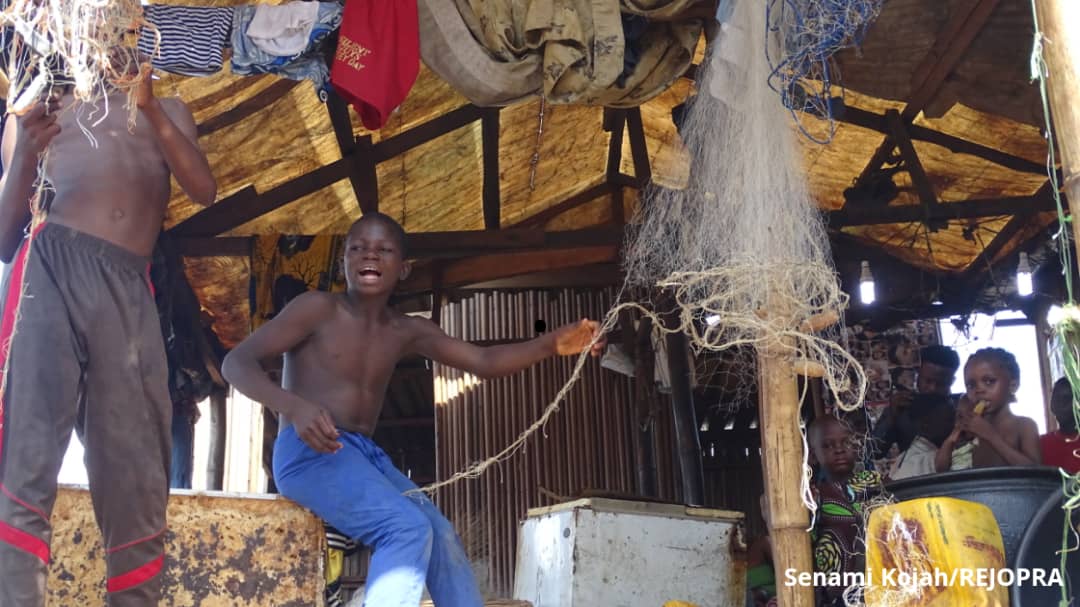
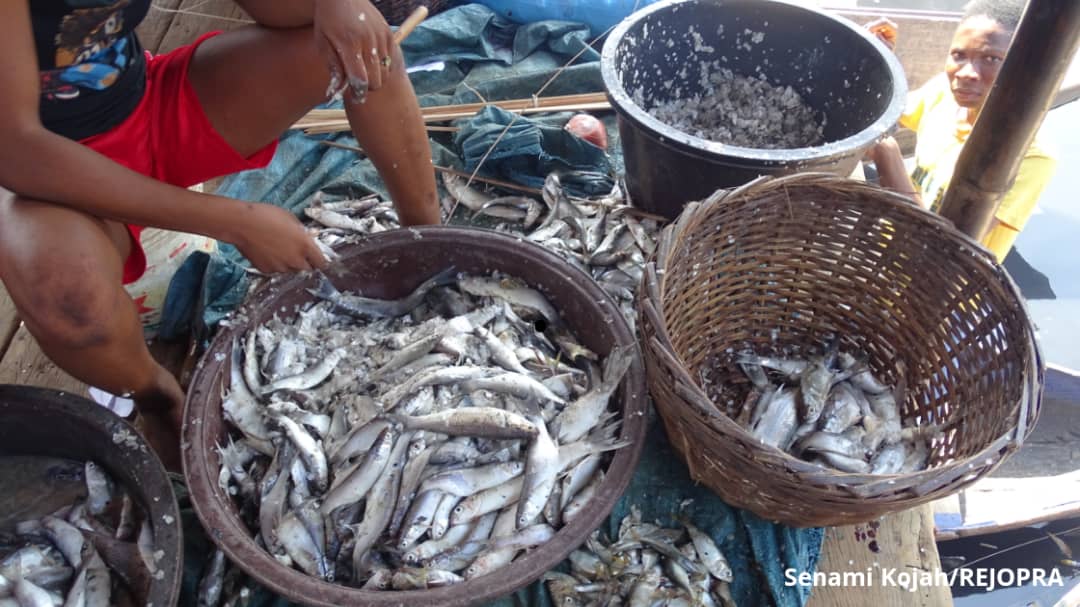
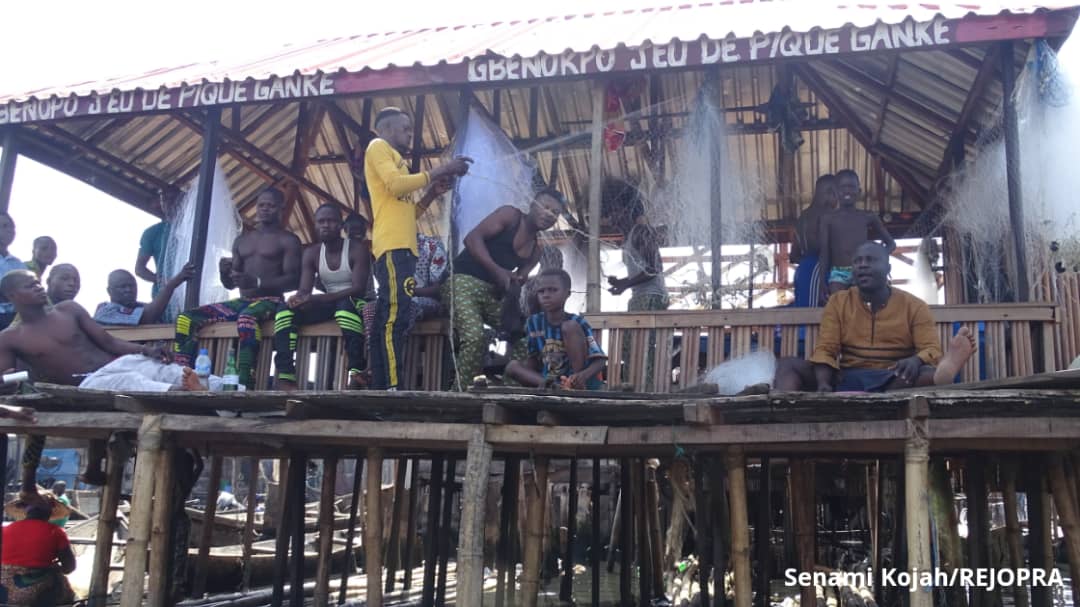
Locals lounging and weaving nets on the Lagoon.
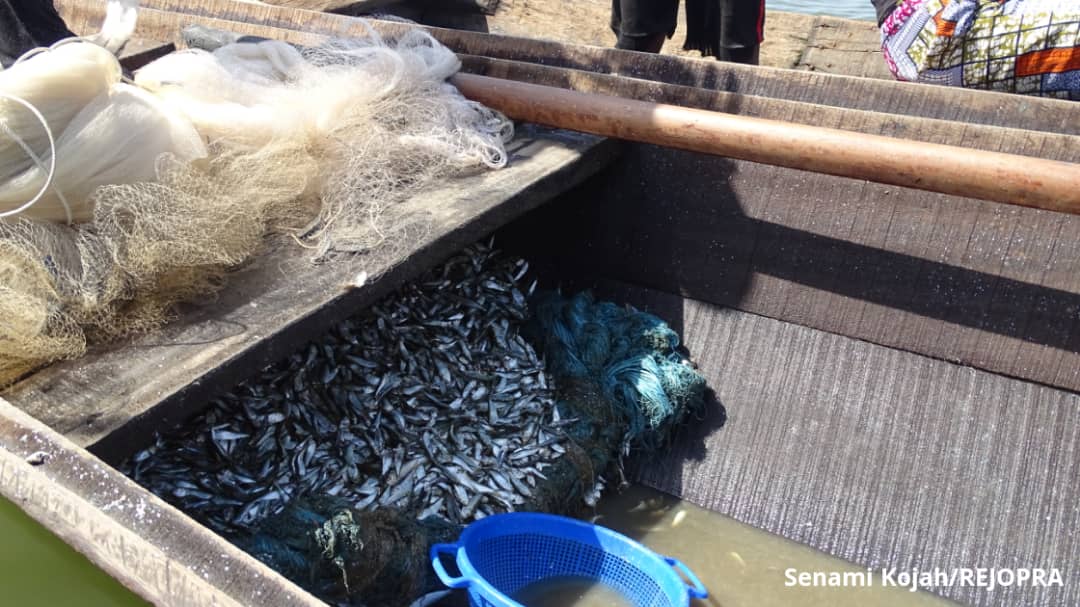
White Bait is a common find in the Lagoon.
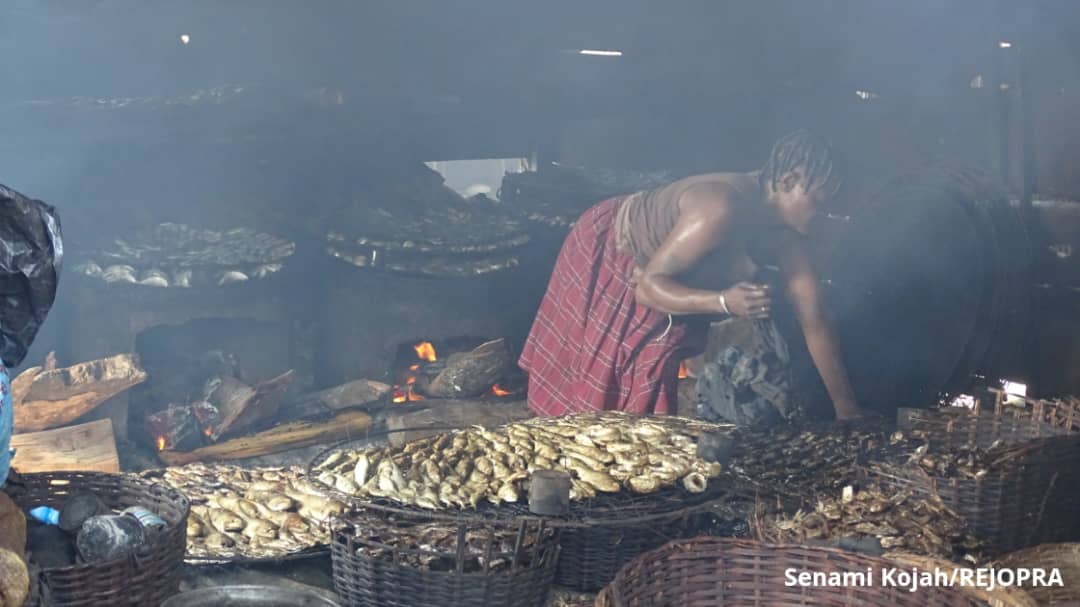
Teju’s mother, Mrs Azankpo processes the fish for sale.
Lagos Fishermen Embrace Tourism
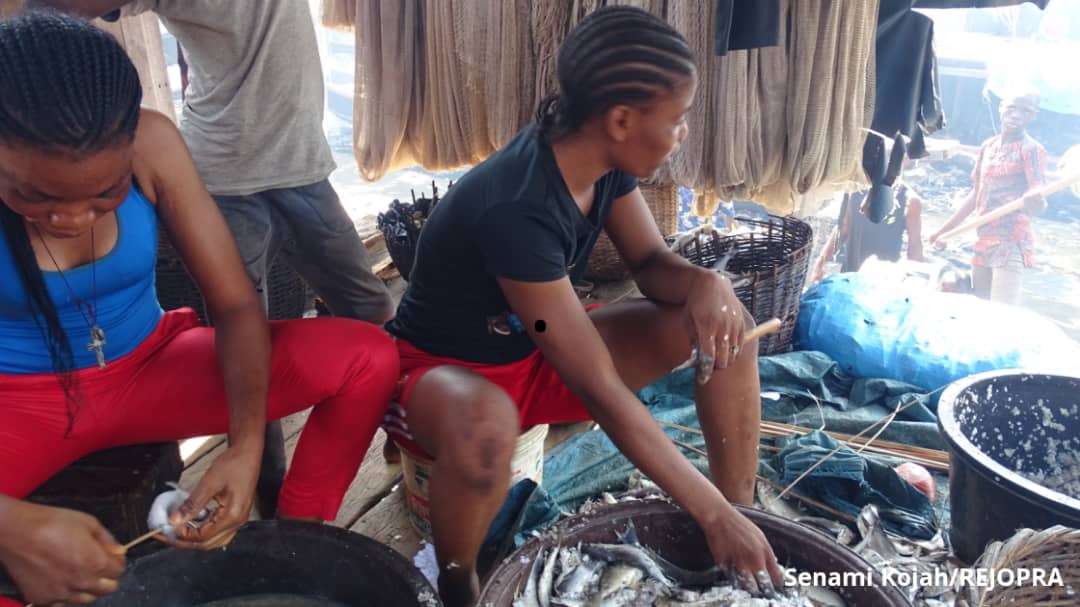
Teju Azankpo and her sister scale and prep fish for processing in Makoko.
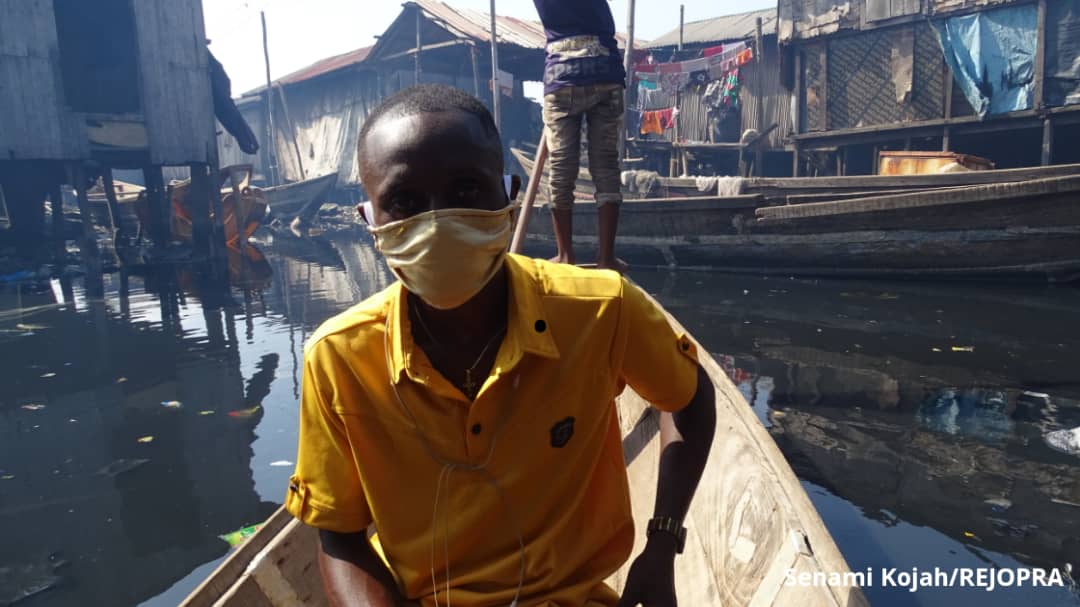
Moses Stephen (Bobo) is a fisherman turn tour guide in Makoko.
The collision of paddle and sand in the middle of the rainy season and the receding water stain on wooden stilts attests to the impact of climate change on Makoko, a floating village sitting at the foot of the Lagos Lagoon inhabited by a fishing tribe of more than 100,000 people.

Locals say some naturally occurring fish species such as the lesser African threadfin (Galeoides decadactylus), the Senegal jack (Caranx senegallus), the West African Ladyfish (Elops lacerta) and Blue Mussels, which sold for higher prices in the market, started to disappear putting a strain on their sole source of livelihoods.
“The catch used to be enormous in the past, we use to catch all the different types of fishes then we stopped seeing Titus fish (Mackerel), Sharks that wander from the ocean seasonally, Silver Catfish and others,” said Segun Azankpo, a popular fisherman in the area.

His meagre catches are now supplemented by money he makes from lending his canoe to tourists.
A study by the Food and Agriculture Organisation of the United Nations in 2007 discovered that apart from climate change, overfishing by industrial fleets in Nigerian coastal areas such as Lagos was leading to a decline in quantity and quality of catch while also causing “environmental degradation seriously impeding the productivity of the artisanal sector and declining efficiency due to lack of technical innovation”.

In order to keep exploiting the waters for fish despite the challenges, some fishermen have turned to revenue from tourism in their community to introduce non-native species such as Bayard, African Arowana, and Grunts, which now dominate the marine wildlife in the Lagoon.

Fascinated by the allure of murky intricate waterways woven in-between makeshift wooden stilts that pale in comparison to other floating cities like Venice, foreign and local tourists seeking new adventures, YouTubers and celebrities looking to create unexplored content for their audience, are trooping into Makoko in droves, thereby providing revenue, which local fishermen in turn use to grow their fish farms.

John Awume, a middle-aged man, who used to fish actively but now paddles tourists around while serving also as a tour guide, said he decided to pause fishing to enable him to save money to create his own fish farm with new species that yield faster and are not within the reach of foreign boats.
“I used to fish actively in the past but the yields became low and my boat developed technical problems so I became broke, my specialty used to be big fishes.
“When tourists come, they pay, even though it is not a lot but I am saving it to start my own fish farm because it is working for others around me,” he said.

The introduction of new and exotic fish species in waters where there is obvious native decline is controversial because of concerns around the conservation of freshwater biodiversity. For example, research in North-Eastern Italy shows how temporal variation in fish assemblages was analyzed over an 18-year period in 14 waterways of the lowland backwaters of the Po River, 14 native and eight exotic species were collected. In less than 20 years, 10 native species underwent local extinction.

In Zimbabwe’s Lake Victoria, the predatory Nile perch, Lates niloticus, and the herbivorous Tilapiines, Oreochromis niloticus, Oreochromis leucostictus, Tilapia zillii and Tilapia rendalii, was introduced in the 1960s due to a decline in native species. While the lake flourished and fishermen thrived through the economic opportunities it created, the lake underwent ecological changes which led to the disappearance of native species.
In Lagos, marine conservation expert, Damilola Ewuro, is calling for the regulation of artisanal fishermen on the lagoon, who are introducing non-native species as a way of protecting the natural habitat.

“In a place like Nigeria where employment is hard to come by, you have to give the fishermen kudos for their innovation in converting the tourism their community is attracting to a means of keeping the skills their forebears handed to them alive. However, there has to be massive regulation of the process.
“This regulation must come with education so as to earn the trust and cooperation of the fish farmers/fishermen who should be at the frontline of protecting the biodiversity of Lagoon,” Ewuro said.

For now, locals like Teju Azankpo, who is a fishmonger along with the rest of her family, are enjoying the boom the new method of fish farming has brought.

Processing many large bowls of varying fish, she says she has lost count of the specific types of fish she processes every day.
“The men bring them in, plenty. We don’t ask for the names, we just clean and process. We went to school from the proceeds of the fish so I’m happy to do the work,” she said.

Another tour boat owner, Moses Stephen said, “We used to make money from making nets and selling to augment the income from the catch we used to make before people started fish farming.

“Now, we rely on the N10,000, N7,000, or N20,000 from people coming to take photos of our slum to fill that gap.
“The water where the houses are is dry and it smells. There is always dirt and pollution so no fish survives here so to start the farm, you have to move further down the Lagoon,” he said.
Farm escapees and invasive, genetic pollution, disease, parasite transfer, and habitat modification are all major concerns around the practice which calls for more studies and monitoring.
The shift from fishing native occurring species, which are fast disappearing may mean a resurgence for undisturbed biodiversity in the Lagoon. For now, residents in the floating community are happy that they can host tourists and fish in abundance again.

MORE@AFRILATEST Lagos Fishermen Embrace Tourism
JOIN US ON FACEBOOK Lagos Fishermen Embrace Tourism
-

 Fashion3 months ago
Fashion3 months agoVogue Arabia cover welcomes Salma Hayek in an interview with Penélope Cruz
-

 Football3 months ago
Football3 months agoVAR points out Diego Costa's offense against the fourth referee
-

 USA today entertainment3 months ago
USA today entertainment3 months agoBeyonce with the single “Break My Soul” leads on Spotify Brazil
-

 Health and Fitness3 months ago
Health and Fitness3 months agoVaccine against the reappearance of skin cancer enters final testing phase
-

 USA today entertainment3 months ago
USA today entertainment3 months agoSZA, Future and DJ Khaled come together in collaboration
-

 News3 months ago
News3 months agoParents of former player Waleswska are pressured by widower to pay rent for the house where they live
-

 USA today entertainment3 months ago
USA today entertainment3 months agoLarissa Luz and Linn da Quebrada enchant at the Multishow Awards with a tribute to Elza Soares.
-

 Good News TV series3 months ago
Good News TV series3 months agoThe shocking reason behind the decision not to show dead characters in The Last Of Us episode revealed











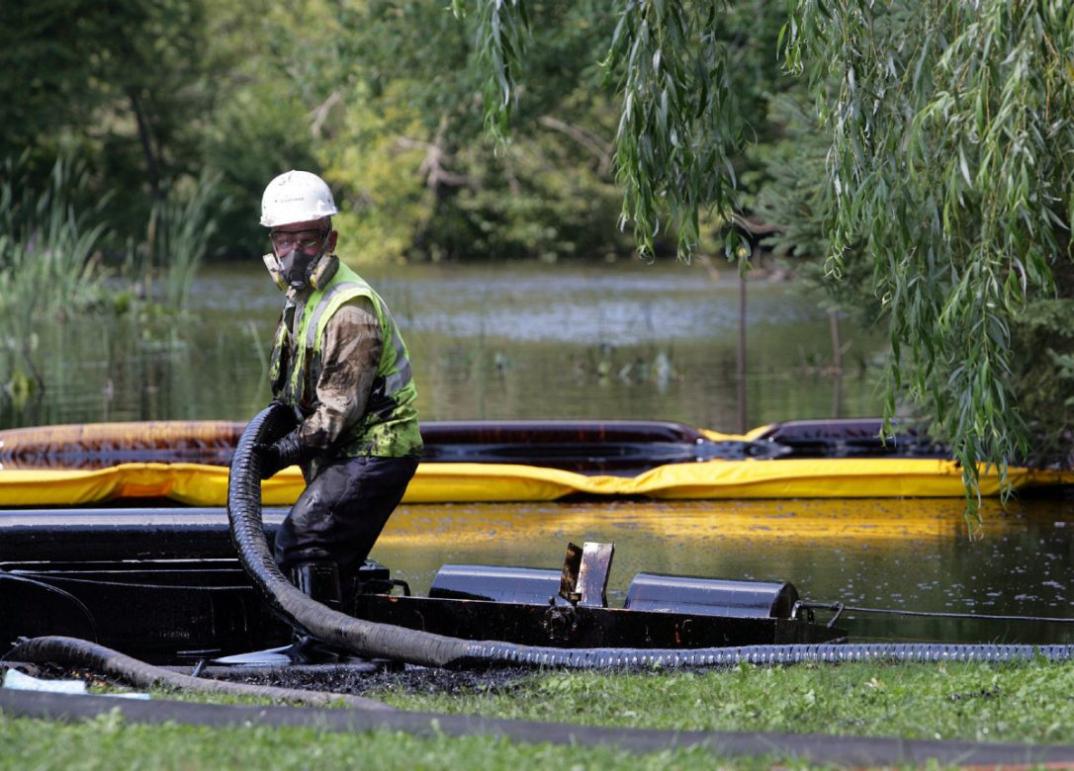



















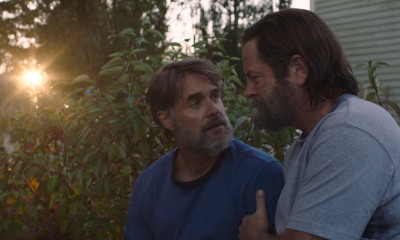


Dorcas Babalola
May 4, 2020 at 10:54 am
Great job
Anyanwu Bright
May 7, 2020 at 6:40 pm
Nice job